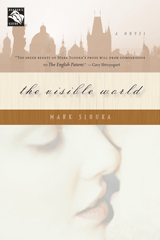Summary | Excerpt | Reading Guide | Reviews | Beyond the Book | Readalikes | Genres & Themes | Author Bio

1
One night when I was young my mother walked out of the country bungalow
we were staying in in the Poconos. I woke to hear my father pulling on his
pants in the dark. It was very late, and the windows were open. The night was
everywhere. Where was he going? I asked. “Go back to sleep,” he said.
Mommy had gone for a walk. He would be right back, he said.
But I started to cry because Mommy had never gone for a walk in
the forest at night before and I had never woken to find my father pulling on
his pants in the dark. I did not know this place, and the big windows of
moonlight on the floor frightened me. In the end he told me to be brave and
that he would be back before I knew it and pulled on his shoes and went
searching for his wife. And found her, eventually, sitting against a tree or by
the side of a pond in her tight-around-the-calf slacks and frayed tennis shoes,
fifteen years too late.
My mother knew a man during the war. Theirs was a love story, and like any
good love story, it left blood on the floor and wreckage in its wake.
It was all done by the fall of 1942. Earlier that year, in May, Czech
partisans had assassinated Reichsprotektor Reinhard Heydrich in Prague,
and the country had suffered through the predictable reprisals: interrogations,
purges, mass executions. The partisans involved in the hit were killed on
June 18. In December of that year my parents escaped occupied
Czechoslovakia, crossing from Bohemia into Germany, from Germany to
France, then south to Marseille, where my mother nearly died of scarlet fever
before they could sail for England, and where my father and a small-time
criminal named Vladek (who had befriended my father because they were
both from Brno) sold silk and cigarette lighters to the whores whose
establishments tended to be in the same neighborhoods and who always
seemed to have a bit of money to spend.
They were very young then. I have the documents from the years
that followed: the foreign-worker cards and the soft, well-worn passports with
their photos and their purple stamps, the information (hair: brown; face: oval)
filled in with a fountain pen . . . I have pictures of them—in Innsbruck, in
Sydney, in Lyon. In one, my father, shirtless and glazed with sweat, a
handkerchief around his head, is standing on a chair, painting a small room
white. The year is 1947. The sun is coming through a curtain-less window to
the left. My mother is holding the can of paint for him. Behind him, the
unpainted wall above the brush strokes looks like the sky above a mountain
range.
I was born, three years later, into a world that felt just slightly
haunted, like the faint echo of an earlier one. We were living in New York
then. At night, high in our apartment in Queens, my mother would curl herself
against my back and I would smell her perfume, her hair, the deep, cave-like
warmth of her, and she would hum some Czech song or other until I
pretended to be asleep. We always lay on our right sides, my head tucked
under her chin and her left arm around me, and often—it’s the thing I
remember most clearly about her now—her fingers would twitch against my
stomach or my chest as if she were playing the piano in her dreams, though
she wasn’t dreaming, or even asleep, and had never played the piano in her
life.
Half a lifetime after the night my father left our cabin to look for my mother,
long after they were both gone, I met a man in Prague who told me that the
city I thought I’d come to know actually lay four meters under the earth; that
the somewhat dank, low-ceilinged café we were sitting in at the time was not
the first story, as I had assumed, but the second. To resist the flooding of the
Vltava, he said, the streets of the Old Town had been built up with
wagonloads of soil—gradually, over decades—and an entire world submerged.
Copyright © 2007 by Mark Slouka. Reprinted by permission of Houghton Mifflin Company.






Your guide toexceptional books
BookBrowse seeks out and recommends the best in contemporary fiction and nonfiction—books that not only engage and entertain but also deepen our understanding of ourselves and the world around us.